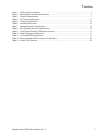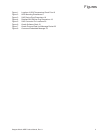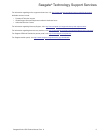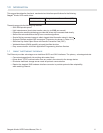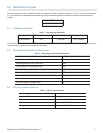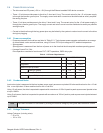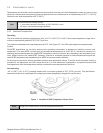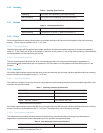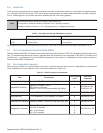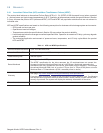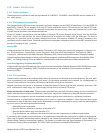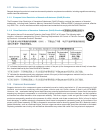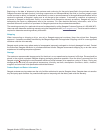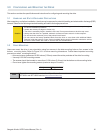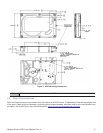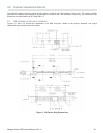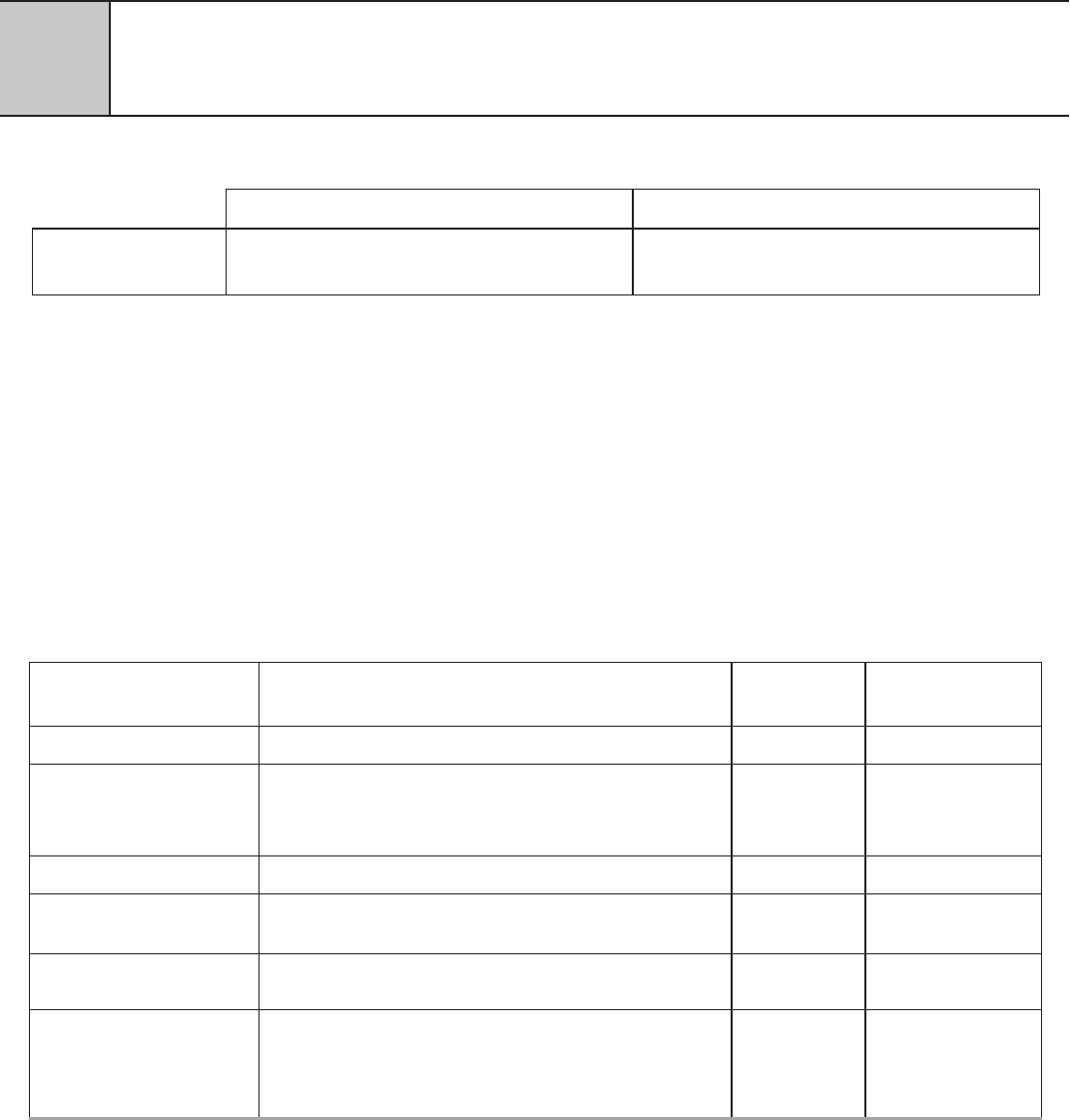
Seagate Kinetic HDD Product Manual, Rev. A 11
2.6 ACOUSTICS
Drive acoustics are measured as overall A-weighted acoustic sound power levels (no pure tones). All measurements
are
consistent with ISO document 7779. Sound power measurements are taken under essentially free-field conditions
over a
reflecting plane. For all tests, the drive is oriented with the cover facing upward.
Table 9: Fluid Dynamic Bearing (FDB) Motor Acoustics
*During periods of drive idle, some offline activity may occur, which may increase acoustic and power to operational
levels.
2.7 TEST FOR PROMINENT DISCRETE TONES (PDTS)
Seagate follows the ECMA-74 standards for measurement and identification of PDTs. An exception to this process is the
use
of the absolute threshold of hearing. Seagate uses this threshold curve (originated in ISO 389-7) to discern tone
audibility and
to compensate for the inaudible components of sound prior to computation of tone ratios according to
Annex D of the ECMA-74 standards.
2.8 ELECTROMAGNETIC IMMUNITY
When properly installed in a representative host system, the drive operates without errors or degradation in performance
when subjected to the radio frequency (RF) environments defined in Table 2.9.1
Table 10: Radio Frequency Environments
Test Description
Performance
level
Reference
standard
Electrostatic discharge Contact, HCP, VCP: ± 4 kV; Air: ± 8 kV B EN61000-4-2: 95
Radiated RF immunity
80MHz to 1,000MHz, 3 V/m,
80% AM with 1kHz sine
900MHz, 3 V/m, 50% pulse modulation @ 200Hz
A
EN61000-4-3: 96
ENV50204: 95
Electrical fast transient ± 1 kV on AC mains, ± 0.5 kV on external I/O B EN61000-4-4: 95
Surge immunity ± 1 kV differential, ± 2 kV common,
AC mains B EN61000-4-5: 95
Conducted RF immunity 150kHz to 80MHz, 3 Vrms, 80% AM with 1kHz
sine A EN61000-4-6: 97
Voltage dips, interrupts
0% open, 5 seconds C
EN61000-4-11: 94
0% short, 5 seconds C
40%, 0.10 seconds C
70%, 0.01 seconds B
Note
For seek mode tests, the drive is placed in seek mode only.
The number of seeks per second is defined by the following equation:
Number of seeks per second = 0.4 / (average latency + average access time)
Idle* Put / Get Seek
4 Disks
(4TB)
2.3 bels (typical)
2.5 bels (max)
2.8 bels (typical)
3.0 bels (max)



